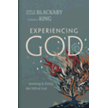S3E035-Romans 11-12: God’s Open Door Policy
Podcast: Play in new window | Download
Podcast Introduction
Our reading today is Romans 11-12, and I’m calling the episode “God’s Open Door Policy”.
Thoughts on Romans 11
Paul ended the last chapter by saying that Israel had rejected the Messiah, and he begins this chapter by asking if God then, has rejected them.
Not surprisingly the answer is, “Of course not!”. God kept a remnant, a few out of the nation of Israel, who did believe, because of His divine grace.
And then Paul goes on to say that it is because of the unbelief of Israel that God extended grace to non-Jews, or Gentiles. Because of this, they were grafted into the vine. Another way of saying that is that God adopted them into His family.
You know, it’s a wonderful and awesome thing to be born into a family, but how much more special is it when a mom and a dad choose to adopt a child into their family? Children are usually born into a family in the natural course of events, right? But it takes a special effort and will to adopt a child. This is what God has done for those of us who are not Jewish. We are especially loved and chosen.
But we should be aware, Paul says, that natural branches were broken off from the olive tree so that we might be grafted in. That means that we have a special responsibility to be faithful. And also be mindful that if God broke off the natural branches because of unbelief, He will not hesitate to do the same to the Gentile. Now, lest this thought scare you, Paul also reminds us that God’s grace extends even to those Jews who He cut off. If they return to faith, He will graft them back onto the olive tree.
This is the message that flows through all of scripture: if you are unfaithful, you will suffer the consequences. But if you return, God will forgive and bless you.
Verse 29 gives us an incredibly encouraging message: “For the gifts and the calling of God are irrevocable.” Paul was referring to the fact that God has not permanently put Israel aside because of their rejection of the Messiah. But it also applies to all of us. It means that God will never set us aside. He will always welcome us back, He never says, “Well, it was a mistake to call him/her.” The door is always open to return to Him. Always.
Beloved, it is never too late to say “I’m sorry” to God. If you have something that has caused a separation between you and God, if you confess that to Him, He will forgive you. That is the gift we have because of the death and resurrection of Jesus. We don’t deserve that kind of forgiveness, but that’s how much He loves us. Amen.
Thoughts on Romans 12
Present your bodies as a living sacrifice, holy and acceptable to God. For some, this is a hard thing to consider. We like to think that our bodies are our own, right? Well, tie this scripture with what Paul wrote in 1 Corinthians 6:19 and 20: Or do you not know that your body is a temple of the Holy Spirit within you, whom you have from God? You are not your own, for you were bought with a price. So glorify God in your body.
If I profess to be a believer, these are important things to think about as I go about my life. My body is not my own. I have a responsibility to use it in such a way that would be acceptable to God. My body is on loan from its creator. I should use it for His purposes, not mine. I should maintain it so that He can use it to its fullest potential. I should be involved with things that further the kingdom of God, not sinful activities that bring shame on the name of God.
And in suggesting this approach, Paul is appealing to us, or as it says in other translations, he is beseeching us, or urging us. He’s not ordering us, but urging us to do this as an act of will, a decision, as a living sacrifice. A sacrifice done out of love for God, because He deserves it, and because it shows that God’s will is good and acceptable and perfect.
So many in the culture around us think that God is an angry old man in Heaven waiting to catch us doing something wrong so that He can punish us. But if we live in such a way that others see that God is anything but that, we will be helping to usher others into a relationship with a loving Father, and pleasing Him at the same time.
What better motivation could there be to live such a life?
The rest of the chapter tells us what a life pleasing to God looks like. In my opinion, it would be a good practice to read this chapter every day for the next week, and then at least once a week until it becomes a part of you. It’s a recipe that every believer should know by heart.
One last thought: Verse 20 says, …“if your enemy is hungry, feed him; if he is thirsty, give him something to drink; for by so doing you will heap burning coals on his head.” It’s easy to misunderstand the phrase “you will heap burning coals on his head.” It isn’t that we are trying to bring harm to our enemy; that would be completely contrary to what Paul is teaching. It probably means one of two things. First, that our kindness will bring a “burning conviction” to the enemy, that he might begin to question his own behavior. The second possibility is that it’s like lending hot coals from our own fire to help a neighbor start his own. Either way, the person is helped by our actions.
As representatives of Christ, we have a solemn responsibility to live our lives in such a way that people are drawn to Him. Are people attracted to Jesus by the way I live my life, or are they repelled?
Today’s Bible Translation
Bible translation used in today’s episode: Ch. 11-12 ESV
Support
Please remember that this is a listener supported show. Your support of any amount is needed and very much appreciated. Find out how by clicking here.
When you buy through links on this site, we may earn an affiliate commission, and you will earn our gratitude.

 |
Experiencing God (2021 Edition): Knowing and Doing the Will of God By Henry & Richard Blackaby, Claude V. King / B&H Books Experience the book that has restored, reoriented, and renewed millions of people—now thoroughly updated with seven new chapters and dozens of additional stories! Whether you’re reading it for the first time or eager to encounter a fresh edition of the classic text you already love, you’ll not be the same when you finish it. 368 pages, hardcover from B&H. |



